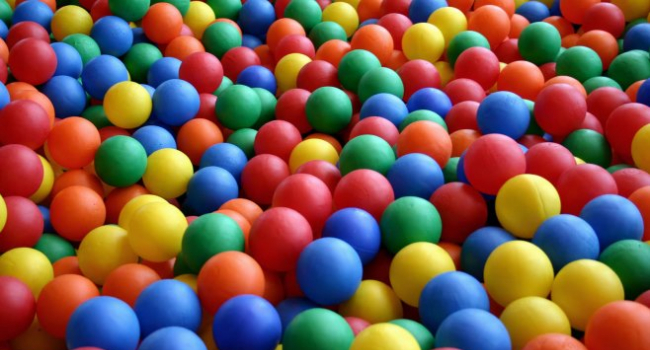- Latest news▼
-
14:37, April 16 Daily Mail: intermittent fasting is not suitable for children and women before their periods

-
16:41, April 15 Cell: in carriers of defective BRCA2 gene, sugar consumption increases cancer risk

-
15:04, April 15 305 cases of measles recorded in Armenia so far in 2024

-
14:38, April 15 Food and Environmental Virology: tea contributes to effective coronavirus control

-
12:41, April 15 Daily Mail: vitamin A, B3 and E supplements can be dangerous

-
10:56, April 15 Diabetes Care: evening physical activity is good for the heart

-
08:27, April 15 Women are more susceptible to blood loss and death during bypass surgery than men, researchers say

-
18:42, April 13 WHO: Nigeria pioneers revolutionary meningitis vaccine

-
16:43, April 13 One-third of women experience menstruation-related migraines, most often during premenopause - study

-
14:37, April 12 Pediatrics: Hypoglossal nerve stimulation implant helps with sleep apnea

-
12:13, April 12 Health minister: Simulation educational center will be created, assisted reproductive technology capacity will increase in Armenia

-
17:03, April 11 BMJ: antidepressant injection 4 times reduced risk of severe postpartum depression

-
11:35, April 11 Health minister: Number of hard-to-reach medical services within state funding scope increased in Armenia in 2023

-
16:10, April 10 Breathing therapy, which is so popular in the world, is starting to spread in Armenia

-
21:36, April 9 Frontiers: sun exposure destroys skin microbiome

All materials
Children's ball pit play areas contain dozens of killer germs because they 'can go weeks without being cleaned'

Ball pits could contain life-threatening germs because they can go weeks without being cleaned, research has warned.
Nine germs that can have disastrous outcomes, including septicaemia, meningitis and pneumonia, were identified in a study.
Ball pits that are often used by autistic children for therapy were investigated.
There are no regulations on how often the play areas should be cleaned, researchers said, leading to a growing colonization of bacteria.
'Ball pits are often contaminated with visible dirt, vomit, faeces, or urine providing an origin and permissive environmental factors for microbial contamination', said study authors at the University of North Georgia.
'Clinics may go days or even weeks between cleanings, which may allow time for microorganisms to accumulate and grow to levels capable of transmission and infection.'
Researchers, led by physical therapist Dr Mary Ellen Oesterle, visited six ball pits attached to inpatient physical therapy clinics or outpatient clinics across Georgia,
Swabs were taken from nine to 15 balls taken from various depths.
On the plastic surfaces, 31 bacterial species were identified, including eight pathogenic bacteria and one pathogenic yeast.
Although there are microbes in every environment, these bacteria, when given the opportunity to cause infection, can be fatal.
A rough estimate was made of the bacteria's prevalence, but in some cases, the numbers were in the thousands.
The authors wrote: 'Bacterial colonization was found to be as high as thousands of cells per ball, which clearly demonstrates an increased potential for transmission of these organisms to patients and the possibility of infection in these exposed individuals.'
The bacteria included Enterococcus faecalis, which can cause endocarditis, septicaemia, urinary tract infections, and meningitis.
Staphylococcus hominis can cause bloodstream infections.
Acinetobacter lwofii has been reported to cause septicaemia, pneumonia, meningitis, urinary tract, and skin infections.
This risk of a child being infected by these bacteria increases if there are cuts to the skin, especially if their immune system is compromised.
The authors said: 'We found considerable variation in the number of microorganisms between the different ball pit samples.
'This suggests that clinics utilise different protocols for cleaning and maintenance, potentially representing a broader need to clarify and establish standards that reduce the risk of transmission.'
Source: The Daily Mail
Follow NEWS.am Medicine on Facebook and Twitter
- Video
- Event calendar
- Archive
- Most read
month
week
day
- Breathing therapy, which is so popular in the world, is starting to spread in Armenia 1836
- BMJ: antidepressant injection 4 times reduced risk of severe postpartum depression 1169
- Health minister: Number of hard-to-reach medical services within state funding scope increased in Armenia in 2023 1128
- Pediatrics: Hypoglossal nerve stimulation implant helps with sleep apnea 1030
- Health minister: Simulation educational center will be created, assisted reproductive technology capacity will increase in Armenia 995
- WHO: Nigeria pioneers revolutionary meningitis vaccine 838
- One-third of women experience menstruation-related migraines, most often during premenopause - study 809
- Women are more susceptible to blood loss and death during bypass surgery than men, researchers say 472
- Food and Environmental Virology: tea contributes to effective coronavirus control 462
- Daily Mail: vitamin A, B3 and E supplements can be dangerous 453
- Diabetes Care: evening physical activity is good for the heart 419
- Cell: in carriers of defective BRCA2 gene, sugar consumption increases cancer risk 410
- 305 cases of measles recorded in Armenia so far in 2024 402
- Daily Mail: intermittent fasting is not suitable for children and women before their periods 146
- Find us on Facebook
- Poll





